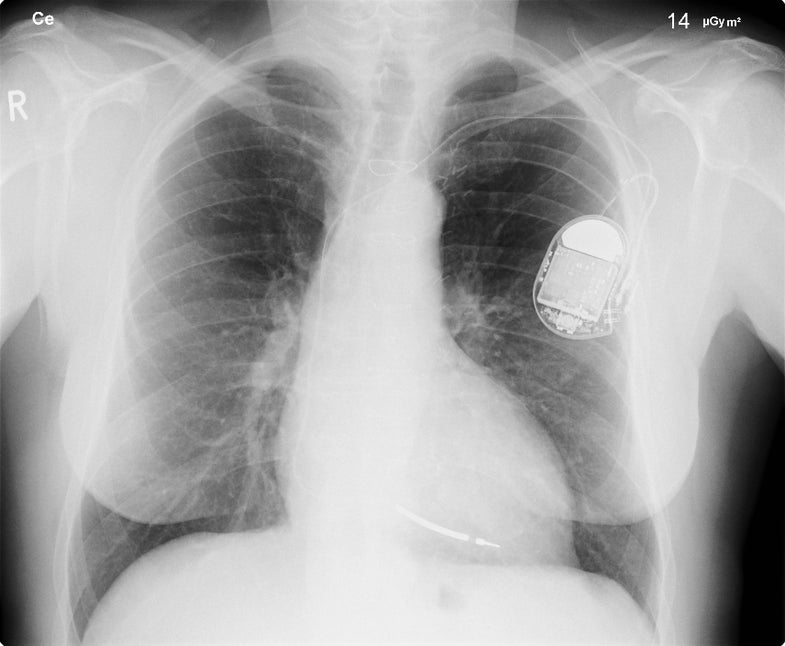How Dick Cheney Took His Heart Offline To Thwart Hackers
It sounds like science fiction, and was actually a plot on Homeland, but he's not wrong.

We may earn revenue from the products available on this page and participate in affiliate programs. Learn more ›
Former Vice President Dick Cheney worried about a cyber attack against his heart. The 72-year-old man has a pacemaker to regulate his heartbeat, and in 2007 he took an unusual step: he asked his doctors to disable the wireless component of his pacemaker. Turns out, this isn’t just paranoia. Thanks to wireless pacemakers, hearts are remotely hackable.

Pacemaker X-Ray
In 2008, a year after Cheney had his pacemaker’s wireless signal turned off, researchers at the University of Washington and University of Massachusetts hacked into a pacemaker/defibrillator, and obtained personal information from the machine, as well as access to some of the controls.
The late Barnaby Jack, a hacker who specialized in finding weaknesses in the electronic components of everyday life, demonstrated another wireless pacemaker hack in 2012. The attacker could inject malicious code into nearby pacemakers, potentially compromising an entire nursing home’s worth of electronically-enhanced hearts. Or a diplomatic summit’s worth. The pacemakers were not only compromised, they could become deadly. In Jack’s demonstration, he delivered 830-volt shocks to a hacked pacemaker.
As wireless-enabled electronic devices proliferate throughout the modern world, they bring with them new vulnerabilities. The easier access that wireless pacemakers bring to doctors, allowing them to adjust the device without invasive surgery, opens up a new avenue of attack. Cheney’s caution may have been warranted.
